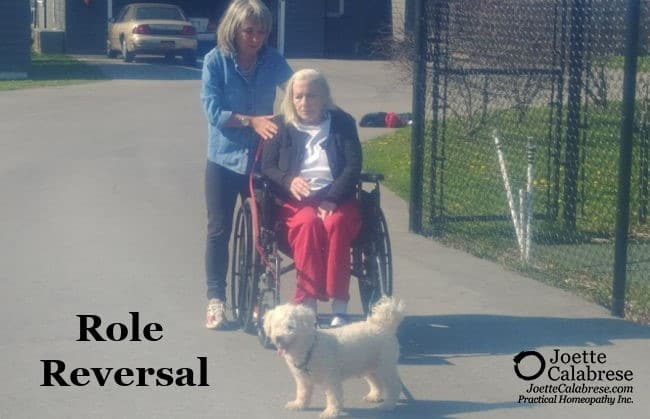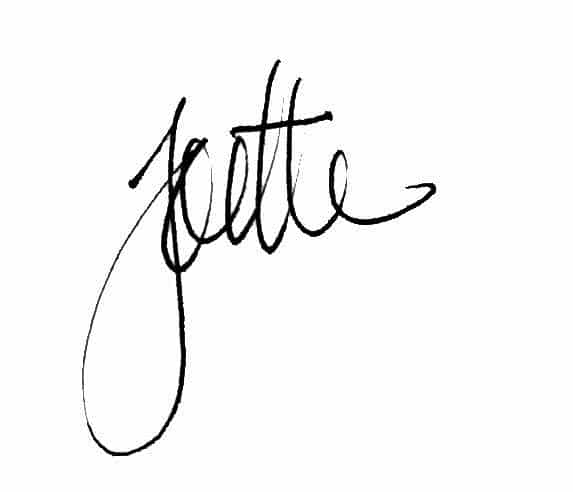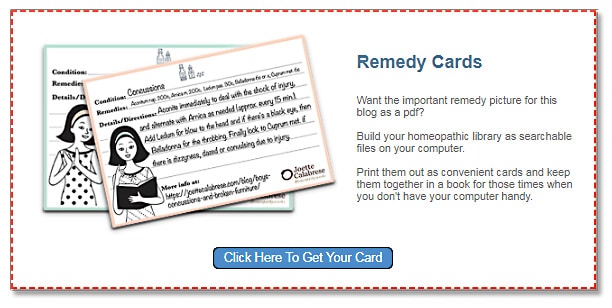They fed us; they bathed us; they diapered us; they strolled us around in the fresh air.
Now they need us to do the same for them.
It’s a simple matter of role reversal as each generation takes care of their elderly parents.
While it is a beautiful and rewarding thing to do, caring for the elderly is not without unusual predicaments and inevitable frustrations. I did a podcast on this topic: Podcast 51 — Aging: Our Grandparents, Our Parents and Us.
My mother lived with us for about a year before she passed away in late 2019. While each situation is different, many issues are quite common in eldercare. For instance, when my mother initially became my charge, her emotions were big. She cried and, not unlike many in her situation, she was sometimes angry.
Although my mother’s dementia had taken over to the point that she didn’t fully comprehend her situation, who wouldn’t cry and be angry over such a drastic change in ability? It’s quite common for our elders to have over-the-top emotions.
So, first and foremost, I worked with her homeopathically to even her temperament and bring her back to her old sweet self.
For crying and insomnia, I gave her Ignatia 200, twice a day, until these conditions abated. By then it was easy to forget the medicine since the condition didn’t arise again until I inadvertently stopped giving it to her.
One persistent issue was urinary tract infections. UTIs are a leading cause of death in our elderly population. However, homeopathy offers an exceptional medicine for UTIs — Cantharis 30, generally used every few hours depending on severity. I noticed that when she was particularly restless, it wasn’t long after that a UTI presented. My mother had her unique little way of showing me and through observation, I was able to recognize it.
Not only does it work effectively, but the use of homeopathy allows the avoidance of the classic complications of yeast infections, constipation, food intolerances and gut issues that antibiotics most assuredly usher in. (We’ve discussed Cantharis previously in Podcast 81 — Ladies Only and in Recurring UTIs and Antibiotics: Stop the Cycle.)
If your elderly charge is unable to communicate their urinary discomfort, fear not. A UTI diagnosis is often an easy — and logical — deduction made by your awareness of an odd urine odor.
Another cause of mortality among seniors is pneumonia. If caught early on, Aconitum napellus 200 mixed together in the mouth with Bryonia 30 (Banerji Protocol) can nip it in the bud! I would give it to my mother every 15 minutes or so for the first 3-4 doses and then back off to every 3-4 hours. As she began feeling better, the frequency slowed to every 5-6 hours (and so on). (I recently discussed the use of this remedy in my blog post, “We Can Do This … Mother-to-Mother, Family-to-Family.”)
Constipation is another chronic issue with our older generation. Think about it: they’re sitting all day. Their lack of movement results in, well, a lack of “movements.” Couple immobility with the side effects from the drugs they might be on, and you have a recipe for discomfort.
As discussed in the same blog post above, Nux vomica 200 or 30, twice daily when needed, combats constipation — politely, rather than aggressively with explosive laxatives. (You can also read about the same use of Nux vomica in Medication Causing Constipation in Children.)
Now, I have no doubt you might wonder, “How on earth do I get homeopathic remedies into my aging parent — especially when I have several conditions to address?”
Well, when a parent is unusually obstinate, some tomfoolery might be in order. You’ve no doubt heard the story of my father. Before he became a believer in homeopathy, my mother and I resorted to putting his remedy in his soup!
But that method is certainly not optimal. If you absolutely have no choice, it is a compromise.
If you aren’t at home all day and cannot closely attend your parent, I understand you may have to make concessions. To keep remedies down to a minimum, you would first address what you’ve determined to be the weightiest issue. That remedy should most definitely be separated from the others.
If secondary conditions are less life-threatening — say, just a wart and toenail fungus and gas when they eat wheat — you may be forced to give those secondary remedies together. I have not done it myself, but I have heard from my students and clients over the decades that it works. But again, it is not optimal.
However, I don’t believe it’s all that difficult to present the medications properly. It’s all about case management.
Here was my process (which worked quite nicely, I might add): I separated each remedy or protocol by only a matter of minutes as I dressed and got my mother up and ready for the day and going to bed at night.
For instance, in the morning, I would pop a homeopathic medicine in her mouth when she awoke. As I walked her into the bathroom, I would pop another remedy in her mouth. Washing her up? Another remedy. Setting her back in her wheelchair? Another remedy. Bringing her into the kitchen as I prepared breakfast? Yet another.
All of these medicines were separated by only a matter of minutes. But I gave each one its own little space to act.
And act they did!
In the end, it boils down to this: we can’t depend on others — it’s up to us! We have to take health matters into our own hands. Can you imagine all the drugs my little mother at the end of her life would have been subjected to had my brother, husband and I not committed ourselves to protect her from such?
In some ways, our society has developed a “learned helplessness.” To paraphrase famed business strategist Dan Kennedy, we are holding onto an umbilical cord looking for someone else to plug it into!
It’s as though we have been conditioned to say, “Someone else must have the answer — it can’t possibly be me!”
But we who count on homeopathy know that it CAN be each of us who holds the answer — and, most often, it IS! Especially when it comes to the care of our precious elderly family members.
Now, that doesn’t mean someone else can’t contribute to our solutions. But it does mean we can’t rely on others. As I’ve said before, “GLEAN, don’t LEAN!”
So, friends, you be the hero and I’ll be your guide.
And, of course, pass on the good news of homeopathy.
Warmly,
P.S. Obviously, another condition my mother and many seniors deal with is dementia. It’s too complex to get into it here in a blog. However, I did address it in a Facebook Live that you may be interested in: When Mental Confusion Becomes Hellish (from 7/6/20).
All of these conditions are covered in my Survivalist Guide to Homeopathy. This guide will be your anxiety reliever; providing a plan of action with time-proven and clinically tested homeopathic protocols — whether you have to run from your home or, as in my case, take over the care of your elderly parents. (Click on this link and download my infographic containing 23 emergency homeopathic remedies)
Want to avoid joining Facebook? Mighty Members can watch it right on their member page — acquiescing to Facebook not required!
And remember — all of my Mighties (Joette’s Mighty Members) qualify for a 10% discount on course purchases. If you need assistance getting your discount, email [email protected] for more information.






Mrs. Calabrese,
Thank you for letting us see that personal and touching photo of you and your mother. It says so much and is really very beautiful.
This was an extremely helpful post and I am grateful for the information. May I ask, do you find that Cantharis is particularly good for UTI’s in the elderly? Do you prefer it over the Banerji Protocol of Medorrhinum for seniors?
Thank you & blessings
Thank you.
None are specific for the elderly and both Cantharis and Medorrhinum are excellent for UTI’s. I more often open a UTI case with Cantharis.
Love these practical tips, thank you!
Thank you for your love and caring. God blesses you well!
Thank you so much, Joette, for the very sensitive and practical information. How does one navigate between Nux Vomica and Ignatia, when both are needed at the same time: I understand they both contain the same substance and they’re inimical?
I don’t usually have a concern about “inimicals”. I use what is needed and have seen good results even when used in the same schedule.
Thanks, Joette! It’s a relief to know that .
Please advise on the form of Bryonia 30 I should get from Helios (oral liquid 23% alc., medicating potency, oral liquid 10% alc., LM liquid 10% alc, etc)
Mrs. Calabrese,
Is Nux generally indicated for the elderly over the Banerji Protocol or was this chosen over LycoPlum because drug side effects may be involved?
Thank you & many blessings
Yes, NV is pretty specific for post drug settings.
Thank you Joette! Are there any future plans for a course on caring for the elderly? One common condition not included here is a remedy or several to keep on hand in case of a fall. My mother fell on the ice and was experiencing a lot of pain. Her Dr. prescribed ibuprofen and a muscle relaxer so she can sleep while she heals as well as physical therapy. She has the desire to do things naturally but I’m a new student here and she didn’t know what else to take so she resorted to the meds.
As I’m building my kit I’d like to know what to keep on hand in case of a fall in the future to keep her off prescriptions if possible. I’m guessing after research Rhus Tox, Arnica Montana, and maybe Mag Phos? But the typical sleep remedies like Coffea and Ignatia don’t seem to match the difficulty sleeping after injury.
I’m looking forward to learning LOTS more from your courses and blog so I can care for my kids and the elderly in my family. Love your work! Thanks again!
I actually give my Mum Onion Alium to help her sleep, 30c now don’t ask me why Onion makes her sleepy. Kali phos is very good for sleeplessness as well. I am guessing your Mom is much better now, at least I hope so.
Please let me know what to use with skin sores that arise from being in bed or sitting too long… I have a friend who suffered a stroke, and although he now has a special inflatable mattress, is facing these problems in certain parts of his body.
Banerji Protocols recommends Hepar Sulphuris Calcareum 200c and Arsenicum Album 200c I always give the two together as a dose. x
Thank you so much!
I did not answer before but we did use your suggestion.
Blessings!
Would you use Cantharis 200 for a man with constant UTI’s?
It’s certainly one of the more important medicines to consider but it often doesn’t stand alone.
Should you be interested, I cover the specifics in my online course titled The Antibiotic Alternative
https://courses.joettecalabrese.com/